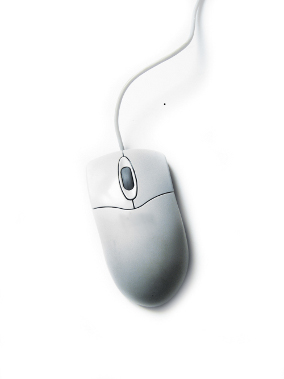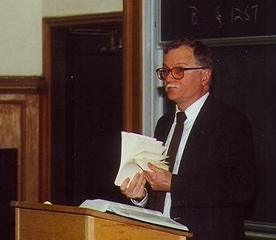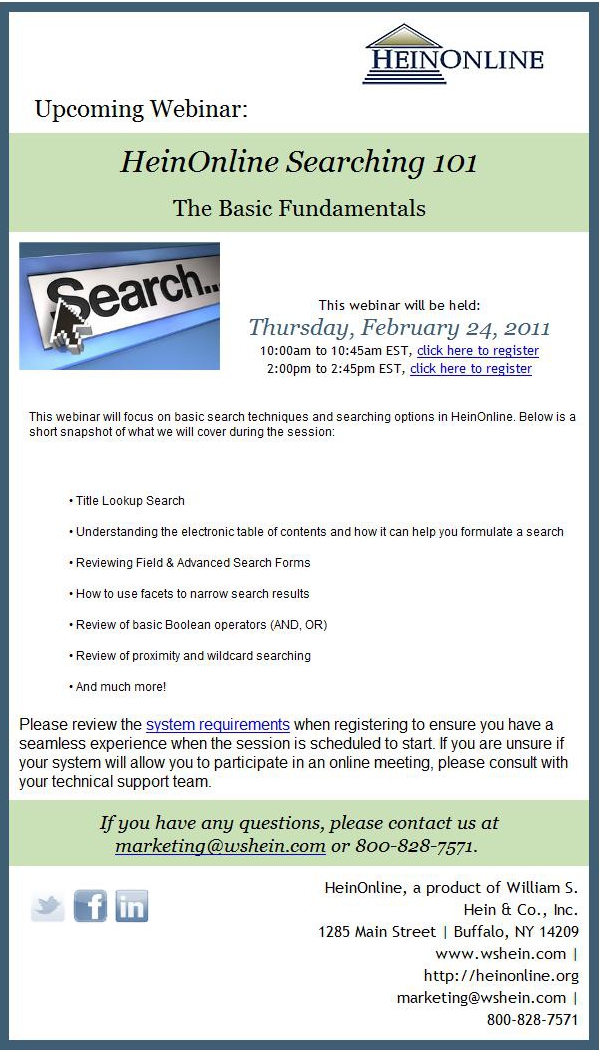 The Cornell Law Library invites 2Ls, 3Ls, and LLMs to submit scholarly research papers to be considered for the Cornell Law Library Prize for Exemplary Student Research. All papers must have been written in the time period spanning June, 2011 – May, 2012. Entries may include, but are not limited to, papers written for a class or journal notes. Work product generated through summer or other employment will not be accepted. Papers must be a minimum of 10 pages in length, must be written in proper Bluebook format, and must be properly footnoted. First prize is $500, second prize is $250, and both winners will be invited to publish their papers in Scholarship@Cornell Law, a digital repository of the Cornell Law Library. For submission procedure and selection criteria, please visit the Law Library website. Submissions will be accepted on an ongoing basis through May 2, 2012.
The Cornell Law Library invites 2Ls, 3Ls, and LLMs to submit scholarly research papers to be considered for the Cornell Law Library Prize for Exemplary Student Research. All papers must have been written in the time period spanning June, 2011 – May, 2012. Entries may include, but are not limited to, papers written for a class or journal notes. Work product generated through summer or other employment will not be accepted. Papers must be a minimum of 10 pages in length, must be written in proper Bluebook format, and must be properly footnoted. First prize is $500, second prize is $250, and both winners will be invited to publish their papers in Scholarship@Cornell Law, a digital repository of the Cornell Law Library. For submission procedure and selection criteria, please visit the Law Library website. Submissions will be accepted on an ongoing basis through May 2, 2012.
 Have you ever come across a great journal article or database for your research, but were denied access? And then you had to practically start your research all over to try to find that article or database through the University Library web site? … Passkey can relieve your frustrations!
Have you ever come across a great journal article or database for your research, but were denied access? And then you had to practically start your research all over to try to find that article or database through the University Library web site? … Passkey can relieve your frustrations!
Passkey will make you a more efficient researcher, both on and off campus. It allows you to connect to databases and journals licensed to Cornell University without having to go through the University Library web site. Install Passkey and gain access simply by signing in with your NetID!
How do you get Passkey on your computer? From the Cornell University Library homepage, under ‘Library Services,’ select ‘Cool Tools’. Follow the installation instructions from there.
 HeinOnline has become indispensable for law review articles, as well as pdfs of the US Code, CFR, Federal Register, U.S. Reports, English Reports, and much more. They have recently announced a free app for your iPhone or iPad. Click here for more details, including how the app works with our IP authentication access. Features of the app include the citation navigator, browsing by volume, and the electronic table of contents.
HeinOnline has become indispensable for law review articles, as well as pdfs of the US Code, CFR, Federal Register, U.S. Reports, English Reports, and much more. They have recently announced a free app for your iPhone or iPad. Click here for more details, including how the app works with our IP authentication access. Features of the app include the citation navigator, browsing by volume, and the electronic table of contents.
HeinOnline has earned its place as a comprehensive legal research tool. You probably use it for finding pdfs of journal articles when you have the citation. Over the last few years, it has developed its searching capabilities to be a first choice for searching journal articles. Hein is offering a 45-minute webinar on Thursday, February 24 at 10:00 am and at 2:00 pm on search techniques for HeinOnline. Sign up using the links below, and you can learn – right at your desktop — more strategies for improving your searches. To register for the 10:00 am session, click here. For the 2:00 pm session, click here.
Dunia Zongwe, a JSD candidate at Cornell Law School, gave a lecture at the Cornell University Institute for African Development on Sep. 2, 2010. Dunia, who is a former fellow of the Institute, spoke about how African countries can leverage their natural resources endowments to develop infrastructure, which in turn will promote the development of socio-economic rights. Click here to read the paper.
Luwam Dirar, Cornell JSD student
Between 1950 and 2008, about one out of every 23 opinions of the U.S. circuit courts of appeals cited at least one article from a law review or law journal.
That is one of the findings of a new article posted on SSRN entitled The Use of Legal Scholarship By the Federal Courts of Appeals: An Empirical Study by David L. Schwartz, a professor at Chicago-Kent College of Law, and Lee Petherbridge, a professor at Loyola Law School Los Angeles.
Surprised by that number? Not only that, but the rate at which U.S. appellate courts cite law journals has been increasing over the past 59 years, from a rate of 3.4% of opinions during 1950-1970 to a rate of 6.21% of opinions during 1999-2008. This finding challenges the conventional wisdom that courts have been paying less attention to legal scholarship lately (challenges–but doesn’t disprove).
Is the conventional wisdom just plain wrong? Was it caused by several earlier empirical studies that found a decrease in citations (those studies were done on a much smaller scale)? The authors of this new study found that about 14% of judges are responsible for about 50% of the citations but do not break this statistic out over time. Could it be that the percentage of judges citing to legal scholarship is decreasing, and there are few judges now who cite to legal scholarship albeit citing more often? Does the conventional view stem from negative statements about legal scholarship made by Justice Roberts, Judge Posner, and other prominent jurists? Is it the result of some combination of these, or is something else going on?
The article makes several suggestions for future research, such as, how do judges really use legal scholarship? As the authors point out, the methodology of the study isn’t adequate to making fine-tuned observations. Then there is the even more difficult question: how should legal scholarship be used by the judicial system? Knowing the answers to these questions will help lawyers and academics be more effective in 1) citing legal scholarship in pleadings submitted to the court; and 2) producing legal scholarship.
As a side note, I was really impressed with the search query the authors used to search for opinions that cite law review and journal articles in Westlaw:
da(YYYY) & ((“l.j.” “l. rev.” “l.rev.” “j.l.” “law review”) /10 (20** 19** 18**)) % ((j.l. /4 v.) ti((j. /2 l.) lj jl j.l. l.j.) (at(lj jl l.j. j.l.)) (“nat! l.j.” “national law journal”))
The first part of the query looks for opinions published during a year period that cite law reviews or journals, the second part after % (BUT NOT) limits the query from retrieving cases where L and J are cited as someone’s initials and citations to the National Law Journal (not an academic publication). The query is not perfect, but it is about as close as you can reasonably get.
Hat tip to Legal Informatics Blog for the SSRN posting.
 Our own Professor Bob Hillman and his collaborator Professor Maureen O’Rourke of the Boston University School of Law have a forthcoming article on the law of software contracts, which is available on SSRN’s Legal Scholarship Network (LSN). Professors Hillman and O’Rourke are not new to the topic: they are the Reporter and Associate Reporter for the American Law Institute’s (ALI) Principles of the Law of Software Contracts. The Principles have been years in the making with a discussion draft submitted to the ALI back in 2007. ALI membership unanimously approved the final draft in May 2009. The current law of software contracts is a messy patchwork drawing from federal intellectual property law, common law, and Article 2 of the Uniform Commercial Code. Thus, the Principles project seeks to “clarify and unify the law of software transactions” by addressing issues of contract formation, enforcement of terms, automated disablement, and contract interpretation, among other issues.
Our own Professor Bob Hillman and his collaborator Professor Maureen O’Rourke of the Boston University School of Law have a forthcoming article on the law of software contracts, which is available on SSRN’s Legal Scholarship Network (LSN). Professors Hillman and O’Rourke are not new to the topic: they are the Reporter and Associate Reporter for the American Law Institute’s (ALI) Principles of the Law of Software Contracts. The Principles have been years in the making with a discussion draft submitted to the ALI back in 2007. ALI membership unanimously approved the final draft in May 2009. The current law of software contracts is a messy patchwork drawing from federal intellectual property law, common law, and Article 2 of the Uniform Commercial Code. Thus, the Principles project seeks to “clarify and unify the law of software transactions” by addressing issues of contract formation, enforcement of terms, automated disablement, and contract interpretation, among other issues.
Now, while software and software law may seem mundane in today’s digitally-driven world, the Principles have not been without controversy, especially in the areas of indemnification and warranties. Specifically, section 3.05, “Other Implied Quality Warranties,” has garnered attention. The section creates a non-excludable implied warranty that “the software contains no material hidden defects of which the transferor was aware at the time of the transfer.” Software providers have expressed concern over the phrase “material hidden defects” and the meanings of the individual words. There is a fear that litigation against them will increase. Professor Hillman addresses the issue of section 3.05 in a thorough blog post last summer. It is worth a read and there are several comments that readers should consider, too. They highlight the notion that exciting controversy is not just the domain of constitutional law cases at the Supreme Court!
 The Law Library developed Scholarship@Cornell Law (S@CL) to provide an online repository for faculty publications and working papers. S@CL has expanded and now includes many other interesting collections to explore. So here are three reasons to click on the link on the Law Library home page to visit S@CL:
The Law Library developed Scholarship@Cornell Law (S@CL) to provide an online repository for faculty publications and working papers. S@CL has expanded and now includes many other interesting collections to explore. So here are three reasons to click on the link on the Law Library home page to visit S@CL:
- Did I mention faculty scholarship? You can browse through papers submitted by year or search by author and see just what your professors have been up to. The collection includes published articles and working papers.
- Check out the Centers and Programs link. Find out about ongoing programs like the Death Penalty Project and the Avon Global Center for Women and Justice (just click on International Comparative Programs to find the Avon Global Center).
- Conferences, Lectures and Workshops gives you a chance to “attend” some of the interesting programs that have been held in the law school in years past. This collection lets you see what was discussed in the comfort of your own room.
We have other collections worth visiting, but hopefully these three highlights will pique your interest in the scholarship happening at Cornell Law School.




